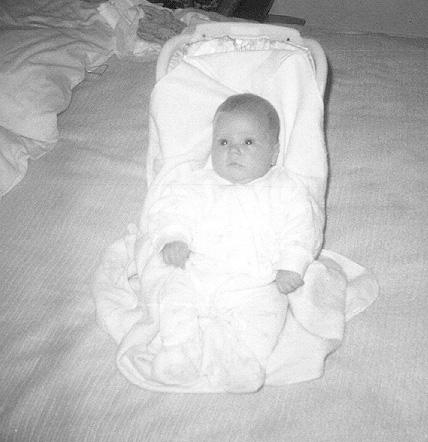Statement from the United Stated Psychiatric Rehabilitation Association
Linthicum, MD. – April 18, 2007 – The U.S. Psychiatric Rehabilitation Association (USPRA) wishes to express its deepest sympathies to the family, friends and classmates of the Virginia Polytechnic Institute shooting victims. As details surrounding the shootings continue to unfold, USPRA has become increasingly more concerned that the media’s focus on the killer's mental illness will lead the public to believe that all persons will mental illness are potentially violent. Public perceptions that violence is strongly associated with mental illness are fueled by graphic media reports of violent crimes.
Studies have shown that it is incredibly rare for someone with a mental illness to commit gross acts of violence, especially on such a scale as the Virginia Tech shootings. Violence is no more prevalent among individuals with mental illness than the general public, and often are more likely the victims of violence than the perpetrators. Along with its continued disapproval of media portrayals of mental illness, USPRA is concerned that the focus on the student shooter’s possible mental illness will cause many students with mental illnesses on college campuses to not seek mental health services or be treated with suspicion as potential murderers, leading to their further isolation and discrimination.
USPRA is disheartened that the media continues to play to people’s misperceptions by painting mental illness as evil and something to fear,” said Marcie Granahan, CAE, chief executive officer of USPRA. “For thirty years, we have been working to break down the barriers and stigma associated with severe mental illness. Along with our members, we have developed the practice of psychiatric rehabilitation that leads to recovery and provides hope. Our hearts go out to the family and friends of the 32 victims and also to those of the suspected shooter. This incident underscores the need for quality campus mental health services and psychiatric rehabilitation support for college students with mental illnesses.”
Psychiatric rehabilitation professionals have conducted research on the experiences of college students with mental illnesses and have created state-of-the-art rehabilitation interventions to support these students to maximize their success and full inclusion. Mark Salzer, Ph.D., from the University of Pennsylvania Collaborative on Community Integration, recently conducted a survey where he found that college students with mental illnesses feel more alienated from other students and their campuses compared to the general college student. “The response to college students with mental illnesses should be to embrace and support them, rather than further alienate them by greatly overemphasizing any supposed inclination toward violence,” stated Dr. Salzer.
It is the hope of USPRA that the nation may learn from the Virginia Tech shootings that all individuals, college students included, have the right to necessary and appropriate mental health and rehabilitation services, and should be treated with dignity and respect, not with fear and shame. The continued portrayal of mental illness as a cause or precursor for violent acts is stigmatizing and discriminatory to a vulnerable population. In the wake of such a national tragedy receiving world-wide media coverage, USPRA urges all media networks to avoid over generalizations about the link between mental illness and violence. "
“USPRA is disheartened that the media continues to play to people’s misperceptions by painting mental illness as evil and something to fear,” said Marcie Granahan, CAE, chief executive officer of USPRA. “For thirty years, we have been working to break down the barriers and stigma associated with severe mental illness. Along with our members, we have developed the practice of psychiatric rehabilitation that leads to recovery and provides hope. Our hearts go out to the family and friends of the 32 victims and also to those of the suspected shooter. This incident underscores the need for quality campus mental health services and psychiatric rehabilitation support for college students with mental illnesses.”
Psychiatric rehabilitation professionals have conducted research on the experiences of college students with mental illnesses and have created state-of-the-art rehabilitation interventions to support these students to maximize their success and full inclusion. Mark Salzer, Ph.D., from the University of Pennsylvania Collaborative on Community Integration, recently conducted a survey where he found that college students with mental illnesses feel more alienated from other students and their campuses compared to the general college student. “The response to college students with mental illnesses should be to embrace and support them, rather than further alienate them by greatly overemphasizing any supposed inclination toward violence,” stated Dr. Salzer.
It is the hope of USPRA that the nation may learn from the Virginia Tech shootings that all individuals, college students included, have the right to necessary and appropriate mental health and rehabilitation services, and should be treated with dignity and respect, not with fear and shame. The continued portrayal of mental illness as a cause or precursor for violent acts is stigmatizing and discriminatory to a vulnerable population. In the wake of such a national tragedy receiving world-wide media coverage, USPRA urges all media networks to avoid over generalizations about the link between mental illness and violence.
Thursday, April 19, 2007
Here's the Twist: the More Stigma, the more Violence
Posted by
DMF
at
9:55 AM
0
comments
![]()
Labels: college mental health, mental illness, stigma, VT gunman
Wednesday, April 18, 2007
Cho Seung-Hui and Mental Illness
Cho, the Virginia Tech gunman, likely had schizophrenia that could have been addressed much earlier. In the Diagnostic and Statistical Manual IV (1994) used by psychiatrists to diagnose mental illness, the following paragraph appears on Page. 287:
"The essential feature of the Paranoid Type of Schizophrenia is the presence of prominent delusions or auditory hallunications in the context of a relative preservation of cognitive functioning and affect...Delusions are typically persecutory or grandiose, or both, but delusions with other themes (e.g., jealousy, religiosity, or somatization) may also occur...Associated features include anxiety, anger, aloofness, and argumentativeness. The individual may have a superior or patronizing manner or either a stilted, formal quality or extreme intensity in interpersonal interactions. The persecutory themes may predispose the individual to suicidal behavior, and the combination of persecutory and grandiose delusions with anger may predispose the individual to violence."
This young man should have been on anti-psychotic medications. Possibly, given his violent tendencies, he should have been a state forensic hospital. Usually I like Keith Olbermann on MSNBC, but he decided to go with this whole "evil" bent, instead of a critically considered analysis of what happened and the lessons that should be learned.
Posted by
DMF
at
7:34 PM
0
comments
![]()
Labels: Cho Seung-Hui, mental illness, schizophrenia

